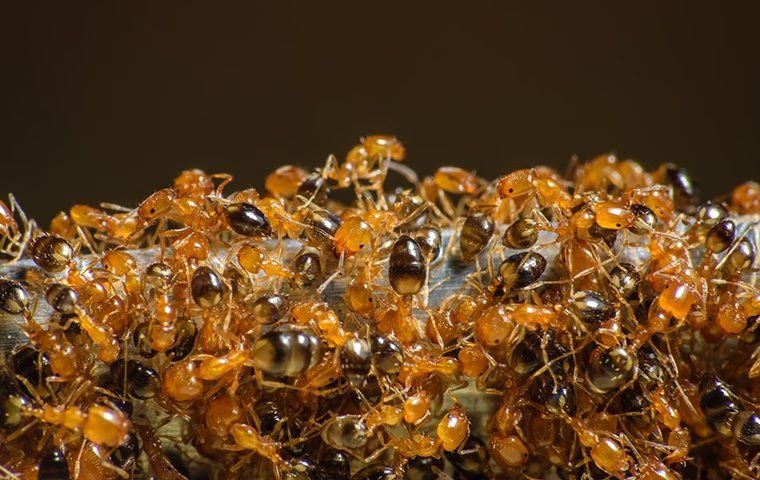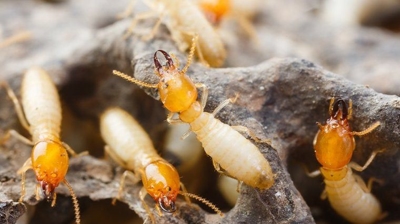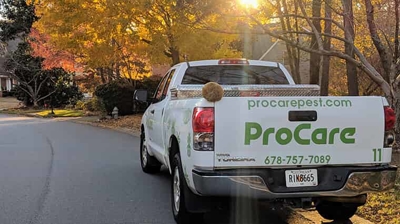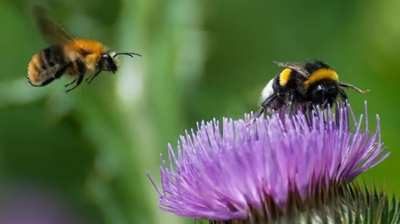
The Dos And Don'ts Of Ant Control: An Extensive Guide For Lawrenceville Homeowners
We have quite a few different ant pests in Lawrenceville. They go by names like thief ant, crazy ant, and odorous house ant. When you start having an ant problem, it is critical to understand the type of ants you're dealing with in or around your home. Today, we're going to give you a quick run-down of common ants in our area and provide you with some dos and don'ts for ant control. Everything you need is right here. If you want an easier fix, remember that your Procare Pest Services team is here to serve you. We offer professional pest control services in Lawrenceville. Now, let's take a look at those dos and don'ts.
Types Of Ants: Understanding Common Ant Species

The first step in any effective pest control plan is to identify the pest you're attempting to control. It is somewhat tricky with ants because many of them look like little black ants, and you may look up "little black ants" only to find information about a specific ant species, Monomorium minimum, not your specific ants.
Here are the most common ants we see around Lawrenceville and a few quick facts you should know.
Argentine Ants: These little ants are often dark brown and may appear black. They may also have a light brown appearance. Argentine ants are pernicious and known for making supercolonies.
Pavement Ants: These are little dark brown or black ants. They make mounds next to hard objects, such as rocks, pathways, driveways, and foundations.
Odorous House Ants: These are little dark brown or black ants. Odorous house ants are known for the smell they create when squished. They are attracted to sweets and are difficult pests to eliminate indoors.
Thief Ants: These ants are the littlest of all at 1/32 of an inch long and are light to dark brown. Due to their small size and large numbers, they are frustrating indoor pests.
Pharaoh Ants: These are the first ants on our list that aren't dark brown or black. They are yellow-red with dark abdomens. Pharaoh ants are like a plague of Egypt and are known for spreading disease.
Fire Ants: We end with an ant that is well known for its red coloration. It may also have a dark abdomen. But you should have no trouble telling it apart from other little black ants. These ants prefer to establish themselves in sunny areas and rarely infest homes. But, when they create mounds near foundation walls, they can get inside and present a threat. Fire ant stings are considered a medical concern.
Now that you know a bit about each of these pests, let's quickly look at some of the risks of having an ant infestation on your property.
Ant Problems: Health Concerns And Property Damage

Why Choose Procare Pest Services?
-
Locally Owned & Operated
-
Timely Services Available
-
Free Inspections for Your Home or Business
-
Modern & Effective Pest Control Methods
Ant Prevention Is Key: Effective Tips And Tricks
It is easy to get outsmarted by ants – far too easy. If you use the right methods, you'll have good results. If you use the wrong methods, you can actually make your problem worse. We'll start with things you should do to stop ants. Then, we'll look at some things you shouldn't do. Together, you'll have the complete picture, and ants are going to have a harder time outsmarting you.
Things You Should Do: Ants are wired to follow certain patterns. There are many ways to counteract the natural behavior patterns ants follow and deter them from going into places they shouldn't. We'll look at what attracts ants to your home, how they find their way indoors, and what they do once inside your home.
Some ants are sweet eaters. They'll eat natural sweets, like nectar, plant sap, and honeydew. They'll also eat human foods that are sweet, like candy, syrup, honey, etc. When you consider sweet food sources around your home and remove them, you'll deter these ants. Reduce weeds with flowers. Address aphids and scale insects. Keep your trash covered, and clean around your outdoor grill if you have one.
Some ants are protein eaters. They feed on natural protein sources, like insects and other bugs. They'll also eat meat from your trash, or off your grill. You can reduce insects in your yard by keeping lights off at night and removing leaves and other organic debris. Reduce bugs and certain insects by cleaning your gutters and keeping your perimeter dry. If you have a grill, make sure to keep it clean.
Some ants climb vegetation in large numbers. If plants touch your exterior walls, these ants can enter your home quickly as a large army. Trim all vegetation away from your foundation and exterior to prevent this from happening.
All ants use small gaps to enter your home. Whether-proofing can deter ants from entering. Pay close attention to exterior door seals and gaps around plumbing. These are common entry points for ants.
When scout ants enter your home and take a look around, they may recruit an army if they find a food source. Make sure no food is put in waste paper baskets. Clean your floors and counters. Soak dirty dishes in soapy water until you're ready to wash them. Cover food containers that are placed on your counters. Keep your kitchen trash covered and routinely wash your receptacle to keep it from having a scent that attracts ant pests.
These and other general pest maintenance tips work to stop ants from naturally encroaching upon the interior of your home. Your goal isn't to get rid of all the ants. You only have to reduce their numbers to prevent indoor infestations.
Things You Shouldn't Do: Ant and pest management is hard, so it is tempting to turn to ant control products for an easy fix. Unfortunately, these products rarely work as expected. Here are a few don'ts you should consider.
Steer clear of using products to directly eliminate ants. Do the over-the-counter sprays work? Yes. They do exactly what they promise. They get rid of ants on contact. But they don't get rid of an ant infestation. In fact, these products can make your problem worse by causing colony budding. If you're not familiar with the term, colony budding refers to the fragmentation of a colony and the separation of multiple queens. These queens move away from the first colony and make new colonies of their own nearby.
Steer clear of applying materials to destroy mounds. DIY mound treatments are rarely effective as the many products used are detectable by the ants and they move away from the treated areas, often splitting the colony as they go.
Steer clear of applying too much bait. Ants evaluate the food sources they find. If ants take the bait you put out and it acts too quickly, they'll get wise to the threat. The result of applying too much bait is the ants can develop an aversion to bait, making them harder to control.
Ant control is tricky. If you want results you can bank on, it pays to hire a trained and experienced pest control technician. Let's take a look at how professionals use smart ant control solutions to get on top of ant problems.
-
"Extremely pleased with the company"
Professional! Communication was excellent. Arrived on time did a great job.
Tonja B. -
"Tech and he’s pretty awesome"
I have been using Procare for about a year or more now and I have no complaints. They have a really good staff.
Kisha L. -
"I am extremely pleased with Procare!"
This company went out of its way to help me solve my dilemma and get me taken care of! I am very appreciative of their kindness and professionalism.
Juanita G. -
"Very knowledgeable and was patient with all our questions"
First time customer. Scheduling was a breeze and they sent me lots of reminders.
Dave J.
Professional Pest Control: A Smart Ant Control Solution
How does a professional take care of an ant infestation? The secret is more about the training and less about the products used. A pest control technician may use exactly the same products you use, depending on how thoroughly you do your research before applying a treatment. The secret is in the application.
We begin with an inspection. During the inspection process, many factors are considered.
Based on the findings of the inspection, a multi-pronged plan is created to address your ant control issue.
Sometimes, mound treatments are needed. When treating a mound, we use a product that is undetectable to ants, which means they can't avoid the treatments. Along with this, the product is slow-acting and will not trigger a defensive response from the queens in a colony.
Often, we use bait to resolve ant infestations. We select a bait that is developed with the preferred food of the pest ant species being treated. We test the bait and apply appropriate amounts when we see that they're taking it.
We may monitor ant activity using devices that catch ants. Monitoring allows us to know when ants are no longer active in the zones in which we want control.
We perform an inspection to check for warning signs of continued activity using field-tested methods.
All of these methods and more are used to address ant problems indoors and around homes. The treatment we select is appropriate to the task and fashioned to meet the specific issue. No two homes are exactly the same. Neither are two ant infestations. If you're having trouble with ants , contact Procare Pest Services today for help and to learn more about our residential and commercial pest control services Lawrenceville. Let our trained technicians use industry-leading methods and trusted products to get the best results.
Complete the form below to request your quote.

Stay In The Know
-
 Keep Your Atlanta Home Fly-Free: How Procare Manages House Flies, Fruit Flies, and Other Nuisance FliesRead More
Keep Your Atlanta Home Fly-Free: How Procare Manages House Flies, Fruit Flies, and Other Nuisance FliesRead More -
 DIY pest control?Read More
DIY pest control?Read More -
 Procare: The Best Pest Control Solutions for Atlanta BusinessesRead More
Procare: The Best Pest Control Solutions for Atlanta BusinessesRead More -
 3 Signs You Might Have a Termite Problem in Atlanta—and How to Spot Them EarlyRead More
3 Signs You Might Have a Termite Problem in Atlanta—and How to Spot Them EarlyRead More -
 Your Year-Round Defense Against Fall Bugs and Joro Spiders in AtlantaRead More
Your Year-Round Defense Against Fall Bugs and Joro Spiders in AtlantaRead More -
 How To Solve Any Fall Pest issue in 2024Read More
How To Solve Any Fall Pest issue in 2024Read More -
 Keeping Spiders Out Of Your HomeRead More
Keeping Spiders Out Of Your HomeRead More -
 Carpenter Bee Survival Guide: Identification, Control, And PreventionRead More
Carpenter Bee Survival Guide: Identification, Control, And PreventionRead More









